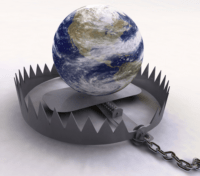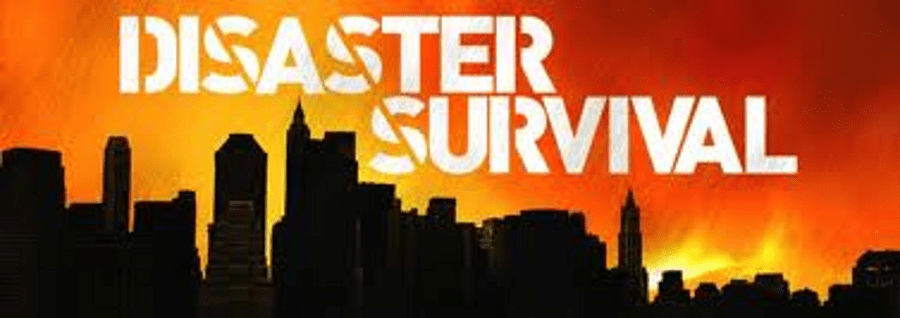Fertilizer Shortage Emergency 2022
Prepare Now For Long Term Effects
The fertilizer shortage will have disastrous effects on food production for all farmers. It’s time to prepare now!!!


The Looming Fertilizer Meltdown and Decline of Abundance in America
Something bizarre is happening… there’s an issue that everyone in the media actually agrees on!
Regardless of where you get your news, you’ll hear pundits talking about the looming food crisis along with the fertilizer shortages that are making it so much worse.
There is no question that this is happening, and that it’s being spurred on by the current conflict in Ukraine. The only question is: how big is the problem going to get?
Read on to see why the fertilizer crisis will have a devastating ripple effect across the globe, from our grocery stores to our homes.
Prices Were Already on the Rise

Before we discuss the current fertilizer crisis, it is important to understand that prices were already on the rise before the invasion of Ukraine.
Since the pandemic, we’ve dealt with many factors impacting how much food is in grocery stores.
There are a number of labor shortages, specifically involving truck drivers. As a result, food is not being transported as easily as it once was.
Plus, the elevated shipping costs to get imported food across oceans and into our country caused prices in grocery stores to skyrocket.
Global shipping continues to be a nightmare, and the ongoing bottleneck won’t be untangled any time soon. In fact, the newest Chinese COVID lockdowns—in Shanghai, no less—will significantly add to the backup.
As a result, companies are paying more for fuel and freight.
For example, one report found, “Last year, transporting a 40-foot steel container cost $1,920; today, the cost can be more than $14,000.”
Those costs are passed on to consumers.
All of this was before the war in Europe began.
Not a Recession, a Depression
Glenn Beck recently put on a television special called “Hunger Games: How to Prepare for the ‘New World Order,’” where he laid out the ways in which skyrocketing food prices will affect us all.
Beck discussed how America has failed to fix inflation in the past. For instance, the Federal Government tried to fix inflation previously by raising interest rates nine times. Eight out of those nine times, it triggered a recession.
But, as Beck pointed out, what we are currently facing (a pandemic, a supply-chain crisis, and a war in Europe) has not happened before.
Therefore, a recession may be a problem that lasts for years, not months.
And we may soon face a depression.
Those who are most prepared to weather the storm will be those who learn to be self-sufficient—like their grandparents had to be.
Watch Glenn Beck’s “Hunger Games: How to Prepare for the ‘New World Order'”
America Imports More Food than Any Other Country
Another reason the food crisis will affect you is that America imports more food than any other country. We actually import double the amount that China does, and they have a significantly higher population!
Between the pandemic and the war in Europe, getting food from other countries is more challenging than ever.
And in order to get these foods, prices must be raised.
The result will be higher prices at the grocery store—or simply not being able to get the items you want.
[Related Read: Why There Is a Dwindling Food Supply]
Now Add in Fertilizer Shortages
This brings us to the fertilizer shortages.
Many people will hear about the high price to import food at this time and think we can fix the problem by eating locally.
While this is a fantastic idea, our local farmers still get much of their fertilizer from overseas… specifically from Russia.

Russia is the top exporter of fertilizer in the world.
Fortune reports, “In early March, Russian officials told fertilizer producers in the country to slow their exports in retaliation to Western sanctions. The soaring costs of fertilizers, and other key agricultural commodities like wheat used for cow feed, could have knock-on effects throughout the world. The high prices might lead to severe bottlenecks, severely reducing agricultural production and aggravating what economists have already designated as a global food crisis.”
While we could normally combat this problem by producing our own fertilizer, critical elements needed to do so, such as natural gas, urea, potash, and ammonia, are also sourced from Russia (and neighboring countries).
Because we import more fertilizer than we export, our farmers do not have access to the crucial agricultural supplies they need when global conflicts arise.
This leads to high costs, delayed shipments (which delays planting), fewer crops planted, smaller harvests, and, ultimately, food shortages.
Svein Tore Holsether, the CEO of major fertilizer producer Yara International, told the Wall Street Journal, “We are going to have a food crisis. It’s a question of how large.”
Moreover, fertilizer is essential for farming. For example, nitrogen helps crops survive should they face dry months or a drought.
Unfortunately, American farmers are already feeling the pinch of the soaring fertilizer costs.
Reuters reports, “In the United States, fifth-generation New Mexico farmer Mike Berry has similar worries. He recently paid $680 a ton for liquid nitrogen to fertilize his corn crop, an ‘exorbitant’ price, he said was 232% above last year’s price. Berry said he plans to cut his spring plantings of corn for livestock feed to about 300 acres from his usual 400 to 600 acres. Berry said he will also reduce applications of liquid nitrogen by about 30%, which could drop his yields by 25%.”
In other words, American farms will produce significantly less food in the coming year(s).
How to Prepare for the Fertilizer Crisis and Looming Food Shortages
It’s real, and it’s coming. Don’t wait until the panic sets in. Start declaring your food independence today.
- Stock Up on Food. One of the best ways to prepare for the coming food shortage is to stock up on long-term emergency food now. Then, when stores run out, you’ll have food to feed your family. See why Glenn Beck says My Patriot’s 6-Month Food Supply is the easiest way to stockpile food.
- Grow Your Own Food. Our grandparents survived the Great Depression by growing their own food. We can do the same.
- Build a Hobby Farm. Now is the time to start a hobby farm. Build a backyard coop and get some chickens.
- Make Friends with Farmers. If you don’t have space for a farm or a large garden, start visiting your local farms or farmers’ markets. This is a great way to identify where you might find food when it runs out.
- Learn to Preserve Food. Spend some time learning to preserve food, so nothing goes to waste.
- Find Ways to Stretch Food. Think about your grandparents and have ideas for ways you can stretch food into several meals, such as cooking casseroles and soups.
- Know How to Find Food in the Wild. Get the gear and know how to hunt, fish, and forage.
Be self-sufficient and prepare, friends.
In liberty,
Elizabeth Anderson
Preparedness Advisor, My Patriot Supply
Fertilizer Shortage Emergency 2022
BROUGHT TO YOU BY:

VISIT OUR OTHER SITES:
Check Out Our Crypto Privacy Site: CryptoGrizz.com
Check Out Our Crypto Trading Site: CryptoGrizzTrader.com
Check Out Our Low Cap Altcoin Site: CryptoGrizzAltcoins.com
Check Out Our Prepper Site: PrepperGrizz.com
Check Out Our Prepper Survival Site: PrepperSurvival.org
Check Out Our Global Crypto Survival Site: GlobalCryptoSurvival.com

